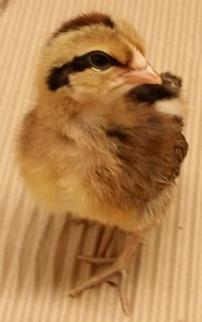Introduction

Cognition is the process of gathering, processing, storing and acting upon information from the surrounding environment (Shettleworth 2010). Animals rely on cognitive processes to be able to find food, shelter and mates as well to avoid predators. Individual variation in cognitive abilities can therefore have great impact on animal lives (Shettleworth 2010). One cognitive aspect which creates individual differences is the biases that can occur in the cognitive process. One of these biases is cognitive judgment bias, which in the latest years have become an important aspect to considder when incvestigating positive welfare.
Cognitive judgment bias is defined as a bias in the cognitive process where the interpretation of stimuli differs dependent on the mood of the individual (Mathews & MacLeod 1985, Eysenck et al. 1991). Work on cognitive judgment bias in humans show that individuals experiencing a negative mood (e.g. depression or anxiety) interpret stimuli more negatively than individuals experiencing a positive mood (e.g. happy or excited, e.g. Mathews et al. 1989, Eysenck et al. 1991). A more well-known example of cognitive judgment bias is asking humans if a glass, filled halfway with liquid, is half full or half empty. Within animal science, cognitive judgment bias was first investigated by Harding and colleagues (2004). They observed that different environmental conditions changed the response of male rats to sound cues indicating reward or punishment (Harding et al. 2004). Rats that were housed in unpredictable housing showed more pessimistic judgments to cues predicting reward and ambiguous cues resembling the rewarded cue, than animals living in predictable housing systems (Harding et al. 2004). Thus, by observing animals’ reactions to ambiguous stimuli that are intermediate to cues associated with punishment and reward, we can interpret the affective states of animals.
I here build on to the existing research that provides evidence for environmental influences by investigating how stress and environmental enrichment influences cognitive judgment bias separately and combined.
While trying to understand animal emotions and welfare through cognitive judgment bias tests, it has become apparent that there are large individual differences in how individuals’ responses are affected by for example stress (Wichman et al. 2012). It is possible that individual differences in emotional states are influenced also by their personality. Animal personality is defined as intraspecific individual variation in behavioural responses over time and / or across context (Gosling 2001, Dall et al. 2004, Réale et al. 2007) and several personality gradients have been found in a broad range of species (Gosling & John 1999, Gosling 2001, Réale et al 2007 ).
I therefore also follow the previous mentioned study up by investigating how different personality types and gradients effect cognitive judgment bias.
My aims are therefore to (1) investigate how environmental enrichments and stress influence cognitive judgment bias in chicks, and (2) investigate how personality correlates with cognitive judgment bias
References
Dall SRX, Houston AI & McNmara JM. 2004. The behavioural ecology of personality: consistent individual differences from an adaptive perspective. Ecology Letters. 7, 734-739.
Eysenck MW, Mogg K, May J, Richards A & Mathews A. 1991. Bias in interpretation of ambiguous sentences related to threat in anxiety. Journal of Abnormal Psychology. 100, 144-150.
Gosling SD. 2001. From mice to men: what can we learn about personality from animal research?. Psychological Bulletin. 1, 45-86.
Gosling SD & John OP. 1999. Personality dimensions in nonhuman animals: A cross species review. Current Directions in Psychological Science. 8, 69-75.
Harding EJ, Paul ES & Mendl, M. 2004. Cognitive bias and affective state. Nature. 427, 312.
Mathews A & MacLeod C. 1985. Selective processing of threat cues in anxiety states. Behaviour Research and Therapy. 23, 563-369.
Mathews A, Richards A & Eysenck M. 1989. Interpretation of homophones related to threat in anxiety states. Journal of Abnormal Psychology. 98, 31-34.
Réale D, Reader SM, Sol D, McDougall PT & Dingemanse NJ. 2007. Integrating animal temperament within ecology and evolution. Biological Reviews. 82, 291-318.
Shettleworth SJ. 2010. Cognition, evolution, and behavior [2nd edition]. Oxford University Press. New York.
Wichman A, Keeling LJ & Forkman B. 2012. Cognitive bias and anticipatory behaviour of laying hens housed in basic and enriched pens. Applied Animal Behaviour Science. 140, 62-69.
Responsible for this page:
Director of undergraduate studies Biology
Last updated:
05/05/15
